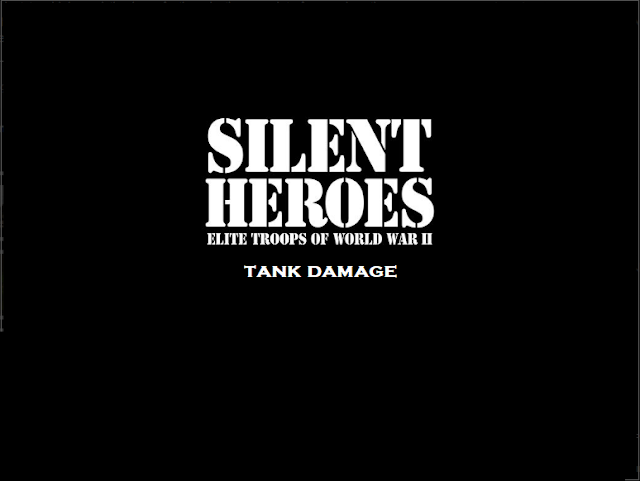
Tanks tend to get a little damaged when they get hit by tank shells,
grenades, and so forth, so it's important to know what the different types of
damage are and what you can and can't do while your tank is inflicted by it.
Enjoy this terrible ASCII tank I made. The numbers on it represent what part
of the tank turns red from the different types of damage.
_
|4| Treads (1): Tread damage is the most common form of damage.
| | Almost anything can break your treads - hand
|4| grenades, anti-tank grenades, heavy weapons,
_____| |_____ and even driving over very bad terrain. While
/| |4| |\ a tread is damaged, your tank will be immobile,
|1| 5 | | 5 |1| but all other parts will operate normally.
| | |4| | |
|1| 5 | | 5 |1| Engine (2): Engine damage is rare, but not too rare. It's
| | | | | | usually caused by anti-tank grenades that land
|1| 5/ \5 |1| right on top of the engine, but a lucky shell
| | / 3 3 \ | | can sometimes cause it as well. While your
|1| | | |1| engine is damaged, your tank will be completely
| | \ 3 3 / | | immobile.
|1| \___/ |1|
| | 2 2 2 2 | | Turret (3): Turret damage is fairly common - anti-tank
|_______________| grenades and shells often disable your turret.
While your turret's disabled, your vehicle will
function normally, but you won't be able to aim
your weapons unless you manually turn the
entire tank.
Barrel (4): Barrel damage is fairly rare, but it can be caused by grenades and
heavy weapons fire. If your barrel is damaged, your main weapon
will be unable to fire, but your machine gun will still be
operational. Your turret will still function normally.
Body (5): Body damage is common when heavy weaponry is involved. Anti-tank
grenades and tank shells will often smash tanks to the point where
they're completely disabled, and that's what this represents.
When your tank has body damage, it won't be able to move at all,
the turret will be immobile, and all weaponry will be disabled.
It's also important to note that, while rare, it's possible to have a soldier
get killed while inside a vehicle. Tank shells are usually the cause of that,
though anti-tank grenades and molotovs can also have that effect.
Fires can also sometimes start when a tank takes a heavy hit. Once a fire
starts, there's no way to stop it. Eject your crew immediately before the
vehicle explodes, or everyone will be killed.
You should also be careful around water and hills. Submerging a vehicle will
render it useless, and it's not as hard as you'd think to tip a vehicle over
when it's on a hill.
Lighter vehicles can suffer from a lot of similar (and a lot of very different)
types of damage. Light vehicles like cars, trucks, and field guns are also
very vulnerable to machine gun fire, unlike tanks.

